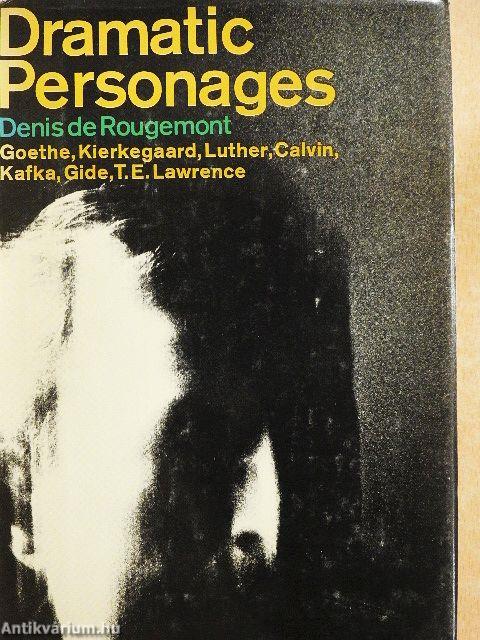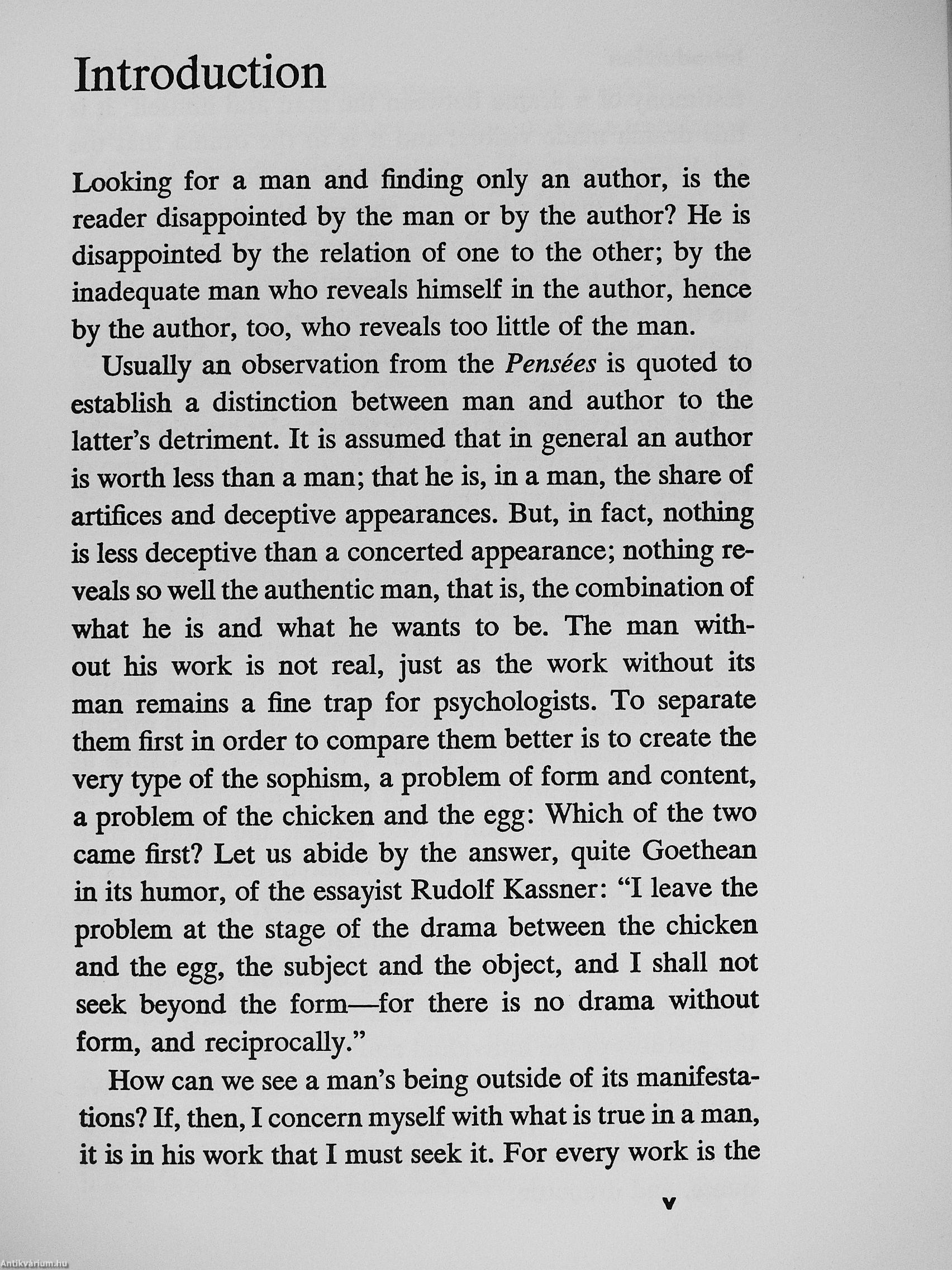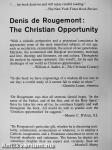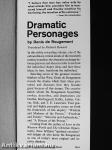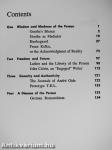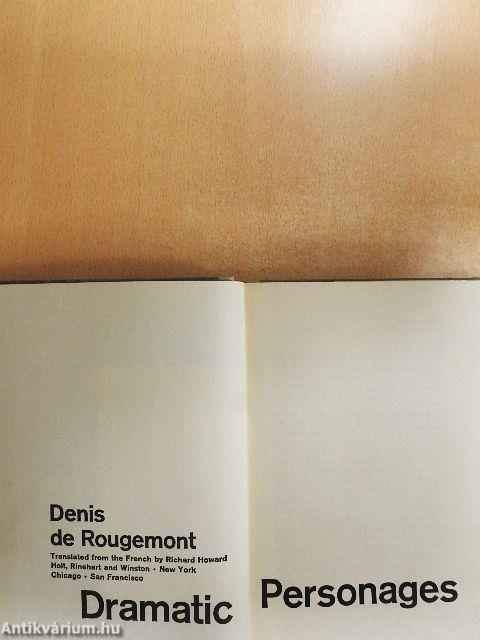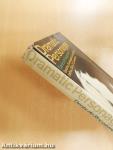1.103.822
kiadvánnyal nyújtjuk Magyarország legnagyobb antikvár könyv-kínálatát

VISSZA
A TETEJÉRE
JAVASLATOKÉszre-
vételek
Dramatic Personages
| Kiadó: | Holt, Rinehart and Winston |
|---|---|
| Kiadás helye: | New York |
| Kiadás éve: | |
| Kötés típusa: | Vászon |
| Oldalszám: | 170 oldal |
| Sorozatcím: | |
| Kötetszám: | |
| Nyelv: | Angol |
| Méret: | 21 cm x 14 cm |
| ISBN: | |
| Megjegyzés: | További kapcsolódó személyek a kötetben. |
naponta értesítjük a beérkező friss
kiadványokról
naponta értesítjük a beérkező friss
kiadványokról
Előszó
TovábbFülszöveg
". . . his book deserves and will repay careful reading."
—The New York Times Book Review
Denis de Rougemont: The Christian Opportunity
"With a catholic perspective and a protestant conscience he approaches some of the most important subjects of our age, such as secularism, existentialism, the unrest of our generation, Marxism, the ecumenical and liturgical movements, marriage and love, theology and literature, art and culture. Throughout his analysis he remains optimistic (his word!), for he sees the challenges of our world as Christian opportunities."
—William A. Sadler, Jr., The Christian Century
"In this book we have outpourings of a wisdom all too rare in our day; a careful study of it cannot fail to make us wiser."
—Quentin Lauer, America
"De Rougemont says that all sermons should begin, 'In the name of the Father, and of the Son, and of the Holy Spirit.' Since he takes his own advice, he continues happily and well throughout the book. All would do well to ponder over... Tovább
Fülszöveg
". . . his book deserves and will repay careful reading."
—The New York Times Book Review
Denis de Rougemont: The Christian Opportunity
"With a catholic perspective and a protestant conscience he approaches some of the most important subjects of our age, such as secularism, existentialism, the unrest of our generation, Marxism, the ecumenical and liturgical movements, marriage and love, theology and literature, art and culture. Throughout his analysis he remains optimistic (his word!), for he sees the challenges of our world as Christian opportunities."
—William A. Sadler, Jr., The Christian Century
"In this book we have outpourings of a wisdom all too rare in our day; a careful study of it cannot fail to make us wiser."
—Quentin Lauer, America
"De Rougemont says that all sermons should begin, 'In the name of the Father, and of the Son, and of the Holy Spirit.' Since he takes his own advice, he continues happily and well throughout the book. All would do well to ponder over the 'Christian opportunities' he suggests."
-Martin C. D'Arcy, S.J.
"De Rougemont's particular gift, whether he is discussing secu-larity, communism, ecumenicism or whatever, is to employ a Catholic imagination and a Protestant conscience to move us beyond deadlocks and stalemates. The futures he depicts are sometimes brighter than we expect and, certainly, than we deserve." —Martin E. Marty
1 -i '
' ' . 1 ! ,1 ) f
: ¦ ! I : ,1
: I
"I believe that man has value only by what attacks him, provokes him to transcend himself and thereby manifest his true being, the intention of his existence."
— from Ihe Introduction
Dramatic Personages
by Denis de Rougemont
Translated by Richard Howard
In this richly rewarding volume, one of the extraordinary critical minds of the twentieth century examines the dramatic exchange between persons and ideas in order to see how the individual shapes ideas and how these ideas, in turn, transform the individual.
Selecting seven of the greatest creative thinkers of the West, Denis de Rougemont reveals the drama which their ideas provoked and discusses how they became great because of this drama. The creative minds whom De Rougemont beautifully evokes, describes, and dramatizes are Goethe, Kierkegaard, Kafka, Luther, Calvin, Gide, and T. E. Lawrence. Four general and highly perceptive essays set forth the framework of this inquiry: "Wisdom and Madness of the Person," "Freedom and Fatum," "Sincerity and Authenticity," and "A Disease of the Person."
Coming from the author of Love in the Western World and The Christian Opportunity, these brilliant "spiritual exercises" will delight all who know De Rougemont as one of today's most original and incisive thinkers.
Jacket design by Rudolph de Harak
1064 Vissza
Témakörök
- Irodalomtörténet > Írókról, költőkről
- Filozófia > Témaköre szerint > Filozófiatörténet > Tanulmányok
- Idegennyelv > Idegennyelvű könyvek > Angol > Irodalomtörténet
- Idegennyelv > Idegennyelvű könyvek > Angol > Filozófia > Témaköre szerint > Filozófiatörténet > Tanulmányok
- Irodalomtörténet > Irodalomtudomány > Tanulmány, tanulmánykötet



